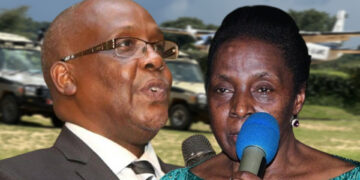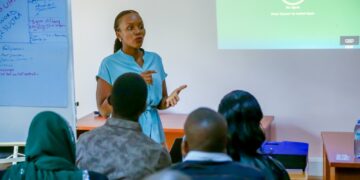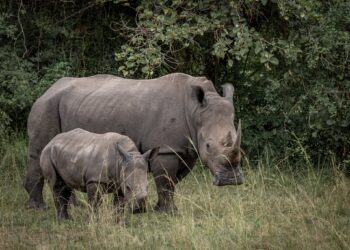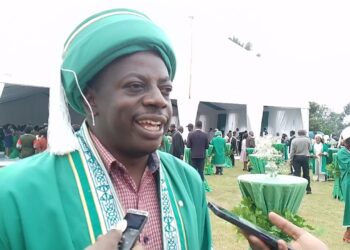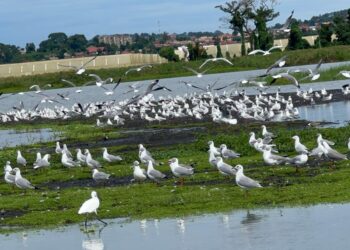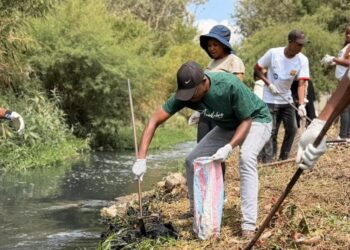OPINION
President Yoweri Museveni’s recent concluded his campaign trail in the West Nile Region.
The trail in West Nile led him to Koboko, Zombo, Madi Okollo, Arua City, Maracha, Pakwach, Adjumani, Nebbi, Moyo, Obongi, Yumbe and Terego.
During his speeches, the president underscored his administration’s deliberate effort to bring the right ideology that changed the country.
He for example said he had been part of the past governments and realised there was sectarianism and this meant they couldn’t form a national army or national party.
According to Museveni, with these mistakes by earlier government, he became part of the student movements and when NRM took power, they did away with sectarianism of tribe, religion and looking down upon women.
He said this meant that a national army could be formed with recruits from all parts of the country without segregation, a factor he said ensured that the boundaries of Uganda are protected.
To him, this created lasting peace that Uganda is enjoying for the first time in the last 500 years.
He cited examples of majority of people of West Nile who had previously run into exile in neighbouring countries like Democratic Republic of Congo and South Sudan who are now back home .
According to Museveni, peace didn’t come by mistake but rather by deliberate efforts by the NRM.
He also noted that because of deliberate efforts, NRM can win an election in the first round without a re-run, noting that this is so because the party did away with sectarianism of tribes and religion to ensure it build massive support around the country.
President Museveni gave examples of past political parties like Kabaka Yekka, UPC, DP and others which he said had either been build on tribal or religious lines which meant they couldn’t raise even 40% of the vote since no religion or tribe has that number of followers.
To this, he said the NRM thought different and this has contributed to peace.
Peace Leading to Development
During his rallies, Museveni told thousands of supporters that peace ensured government can now focus on developing the country, citing major road works, electricity expansion, and improved telecommunication in the West Nile as catalysts for regional growth.
He emphasized that the West Nile which was previously a volatile region is now stable and leading the country’s development and trade with neighbours like DRC and South Sudan where Ugandans previously ran into exile.
He praised the region’s progress, attributing it to the government’s consistent stance against wrongdoing and commitment to doing what is right.
With the West Nile now connected onto the national grid, the president said development in the area will be spurred and everyone will benefit.
Promoting Wealth Creation
Wealth creation was a central theme of Museveni’s campaign, focusing on household income and economic empowerment.
He promoted the Parish Development Model (PDM), designed to lift households into the money economy, and encouraged commercial agriculture, suggesting alternatives like fruit farming and fish farming to boost income.
He said that with the shs1 million each households receives as part of PDM, they can use it to invest in agriculture in form of goat rearing, chicken rearing or any other venture and get profits.
Museveni emphasised that while many talk about development, one can get out of poverty without having development infrastructure like tarmacked roads.
He told the gatherings that tarmac roads don’t fight poverty but engaging in wealth creation does, giving examples of cattle keepers in Ankole who listened to this message and are now well-off.
According to Museveni, many of these are over 90km away from tarmac and don’t have electricity at their farms but installed solar power and are making money. He said that wealth creation should be at the forefront and others can come later.
While progress has been made, challenges persist. Museveni acknowledged internal conflicts and urged attention to these issues.
The President also emphasized the importance of reconciliation and non-retaliation, especially in post-conflict regions like West Nile.
President Museveni’s message in West Nile Region reflects the NRM’s commitment to consolidating peace, promoting wealth creation, and driving development.
With a focus on economic infrastructure, social services, and addressing key issues, the President has resonated with many in the region. As Uganda moves forward, it remains to be seen whether the NRM’s message will continue to inspire progress and prosperity.
By Catherine Namuddu,
The Writer Works with Uganda Media Centre
















